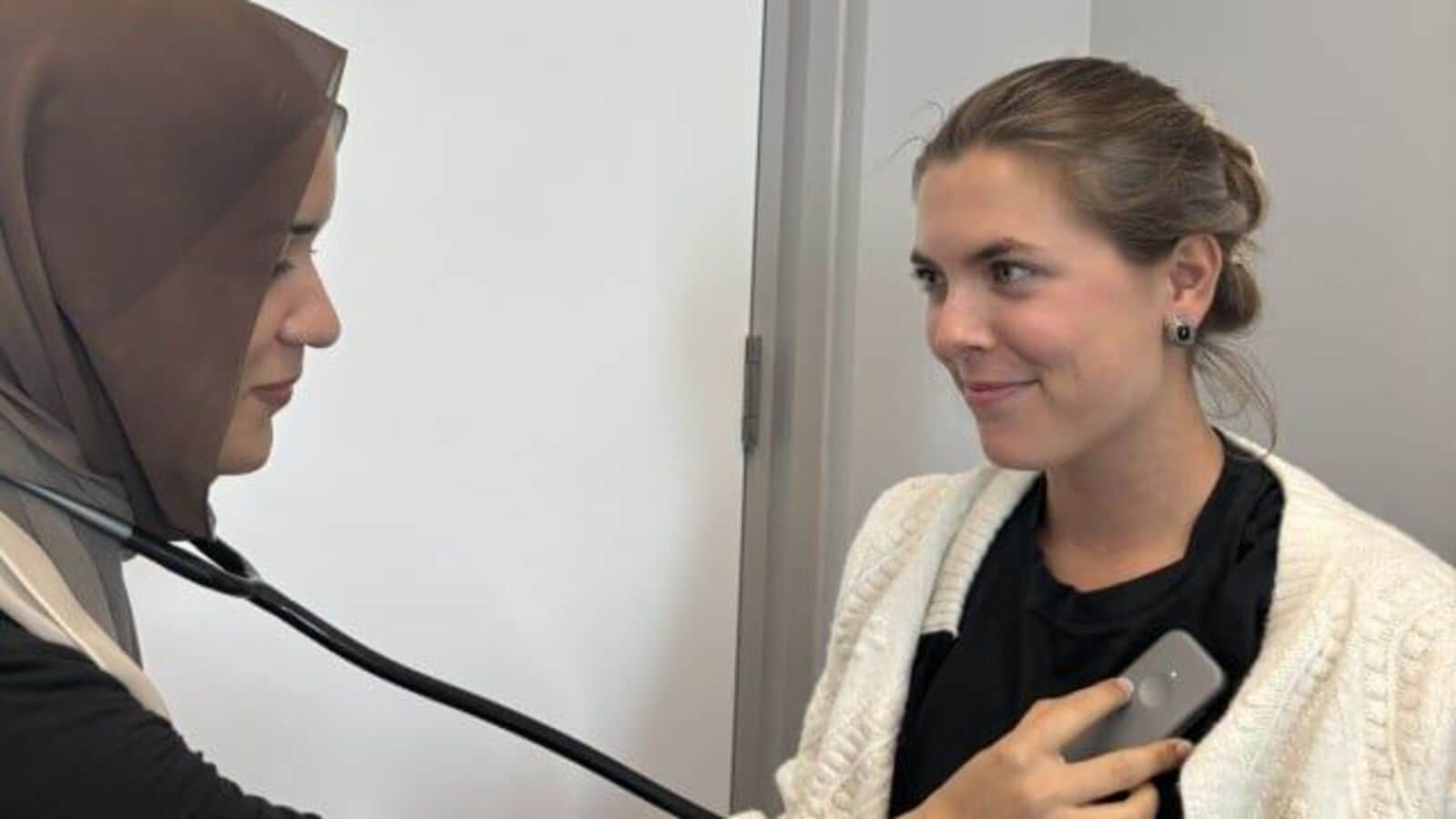Artificial Intelligence is slowly making advances in the healthcare industry, with each new model from tech companies getting better at analyzing health-related queries. Despite the new technology, the way to treat patients has remained largely the same, with doctors using stethoscopes hanging around their necks to access the internal organs of their patients.
The nifty item that has been a part of a doctor’s toolkit since 1816 has now received an AI-powered upgrade. The new AI stethoscope can diagnose three heart conditions—Heart failure (HF), atrial fibrillation (AF), and valvular heart disease (VHD)—in just 15 seconds.
While the traditional stethoscope listens to sounds inside the body, like a heartbeat or breathing, the AI-powered stethoscope goes further than that and can pick up on tiny changes in the heartbeat or blood flow that a human ear would miss. Meanwhile, it can also perform a quick ECG (electrocardiogram) at the same time.
The new device, which is the size of a playing card, has been showcased by researchers at Imperial College London and Imperial College Healthcare NHS Trust as part of a study in the UK called TRICORDER.
The device can also connect via Bluetooth to a dedicated smartphone app where the captured data can be visualized. Meanwhile, it uses cellular or Wi-Fi connectivity to access cloud-based AI algorithms to work its magic. These algorithms are managed by the UK Medicines and Healthcare Products Regulatory Agency (MHRA) and are said to show promising results.
“The statistical performance of these three AI algorithms has been shown to be high and consistent against international external validation studies,” authors of the research paper wrote in the BMJ Open journal.
How does the AI stethoscope work?
The AI stethoscope is placed on the chest of a patient to take an ECG recording of the electrical signals from their heart while its microphone records the sound of their blood flowing through the heart.
This information is then sent to the cloud to be analyzed by the AI algorithms that have been trained on health data from tens of thousands of people and can detect subtle heart problems that a human may have missed.
The test result, which indicates whether the patient is flagged as at risk for heart failure or not, is then sent straight back to the smartphone.
The British Heart Foundation, which partly funded the study, states that people examined using the AI stethoscopes were “2.33 times more likely to be diagnosed with heart failure, 3.45 times more likely to be diagnosed with atrial fibrillation, and 1.92 times more likely to be diagnosed with heart valve disease in the next 12 months.”

